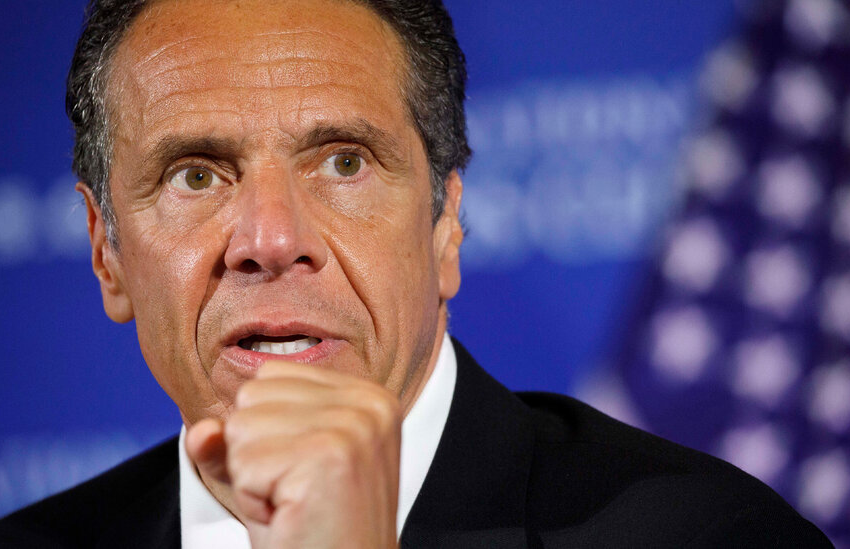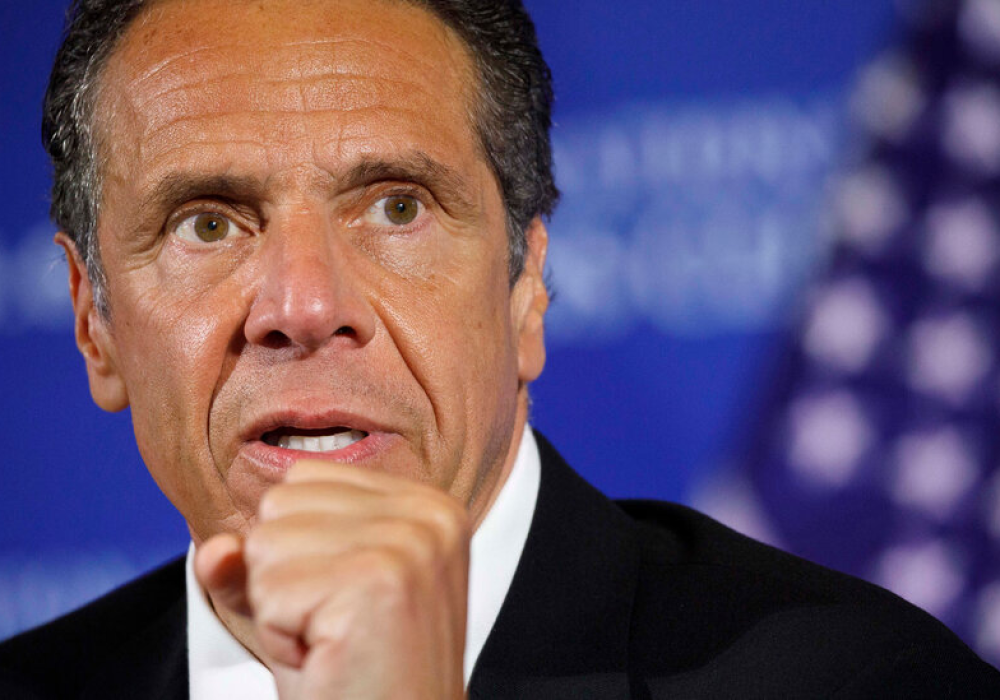An investigation by the New York State Assembly Judiciary Committee has found that former Gov. Andrew M. Cuomo’s administration “materially misrepresented” the extent of deaths that occurred in nursing homes in the early months of the coronavirus pandemic, according to an assemblyman who reviewed the report.
The assemblyman, Phil Steck, a Democrat who represents Colonie, N.Y., said that the report’s findings would have been enough to begin impeachment proceedings against Mr. Cuomo, had he remained in office.
The report, which is expected to be made public early next week, is the result of a broad inquiry into Mr. Cuomo’s behavior in office. Investigators delved into sexual harassment accusations, the undercounting of nursing home deaths, and the circumstances surrounding his multimillion dollar book deal.
Mr. Steck said that the findings of the report would have been sufficient grounds to impeach Mr. Cuomo if he had not resigned, calling it “right, just and fair.”
He also said that based on the report, “it would be a very reasonable inference” that there was some correlation between Mr. Cuomo’s $5.1 million book deal and his administration’s manipulation of nursing home death data.
The Cuomo administration became embroiled in scandal last year following reports that the state was undercounting coronavirus deaths of nursing home residents. A report from the state attorney general’s office concluded that deaths had been substantially undercounted, and eventually the officials increased the tally by more than 40 percent.
The scandal deepened as details emerged about how aides to the governor had deliberately and repeatedly kept the Health Department from releasing the true count of deaths during the pandemic’s first wave. The F.B.I. later opened its own investigation into the cover-up.
Questions have long swirled about whether or not there was a relationship between the report that Mr. Cuomo’s top aides rewrote, which omitted the deaths of 3,800 New Yorkers, and the book that he was writing at the time.
The memoir, titled “American Crisis: Leadership Lessons from the Covid-19 Pandemic,” sought to capitalize on the popularity and acclaim Mr. Cuomo had received for his handling of the pandemic’s brutal early days.
Mr. Steck also said that the report also “strongly corroborates” a report by the office of the state attorney general, Letitia James, that concluded that the governor had engaged in sexual harassment. Mr. Cuomo resigned a week after the report was released.
The Assembly inquiry was commissioned in March as an impeachment investigation, as Mr. Cuomo faced multiple accusations of sexual harassment and growing calls for his resignation.
Members of the Judiciary Committee were allowed to view the report, which was based on an investigation by an outside law firm and is roughly 45 pages long, on Thursday and Friday in Albany.
Some lawmakers have called for Mr. Cuomo to be impeached, despite the fact that he is no longer in power, so as to prevent him from seeking public office again in the future.
But neither Carl E. Heastie, the Assembly speaker, nor Charles Lavine, the chair of the Judiciary Committee, support such a move, and Mr. Heastie has suggested that it might not even be constitutional.
Mr. Steck confirmed that Mr. Cuomo was not interviewed by investigators from the law firm, Davis Polk & Wardwell LLP, which was retained by the Assembly to conduct the inquiry.
Richard Azzopardi, a spokesman for Mr. Cuomo, said that Mr. Steck was a “longtime antagonist of this administration, and it’s the height of hypocrisy that he is holding us to one standard while he and his colleagues run for re-election with the help of legislative staffers volunteering on their own time.”
Mr. Azzopardi also criticized the Assembly committee for not providing Mr. Cuomo or his lawyers a copy of the findings, which he said was “their prerogative, but it may once again result in a one-sided report.”
Mr. Steck said that the report contained new details about how the book deal came about and the bidding war that took place over it, before Penguin Random House ultimately won the contract.
The book later became a financial and ethical headache for the company, and in March it canceled plans for a paperback edition and stopped promoting the title.
Earlier this week, a state ethics board revoked its authorization of the book deal, saying that the request it had granted from Mr. Cuomo “contained material omissions and misrepresentations.”
In particular, it noted Mr. Cuomo’s promise to write the book entirely on his own time, and without using state resources — a promise the board contends he broke, in a potential violation of state ethics laws.
This contention is borne out in the report by the Assembly, Mr. Steck said.
“When you read the report you come to the conclusion that he basically transformed the executive chamber to write a book for his own personal enrichment,” he said, adding that the report contained new details about staff involvement in the book, and the use of Mr. Cuomo’s office and personnel to promote it.
Mr. Cuomo has maintained that state employees volunteered to assist with the book.
“If the Assembly now chooses to prohibit or modify the practice or change regulations on incidental use of state resources, they are free to do so,” said Mr. Azzopardi, the spokesman for Mr. Cuomo. “However new standards cannot be applied retroactively and should be rigorously enforced prospectively.”
Mr. Steck said that the thread that tied all of the inquiries together — the nursing home numbers, the pandemic memoir and sexual harassment allegations — was Mr. Cuomo’s disregard for people he viewed as beneath him.
“He acted like the rules applied to everyone else, but not to him,” Mr. Steck said.











